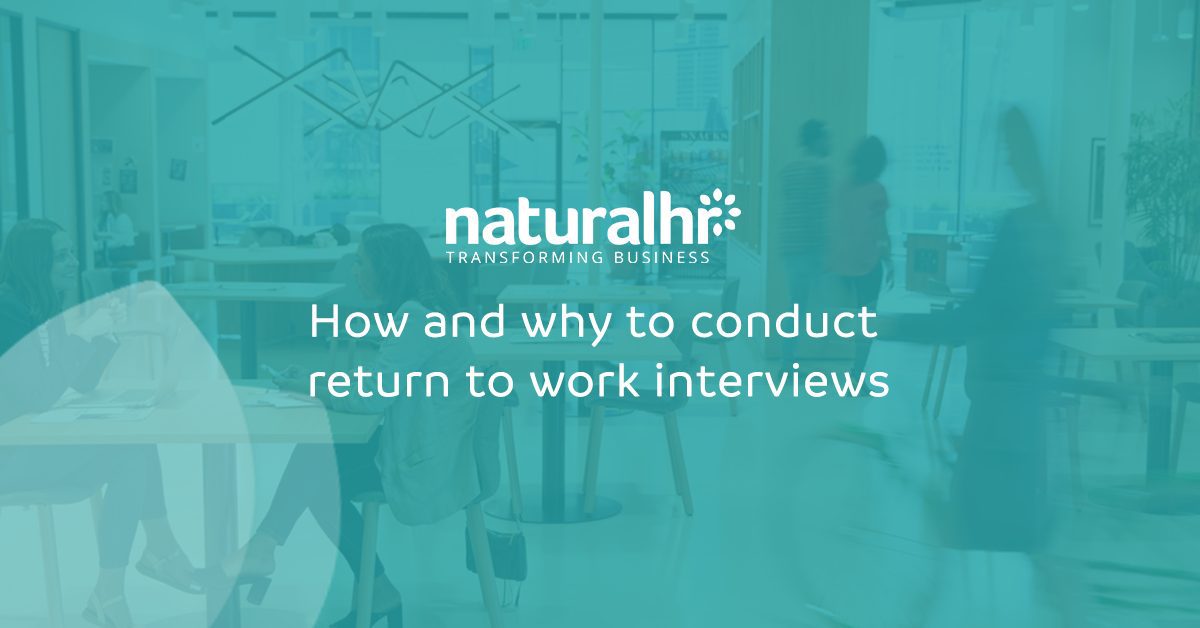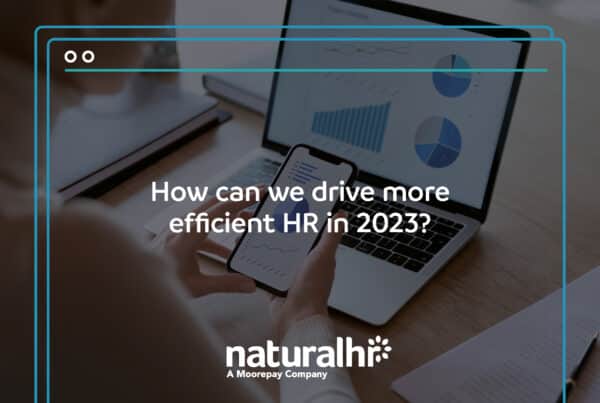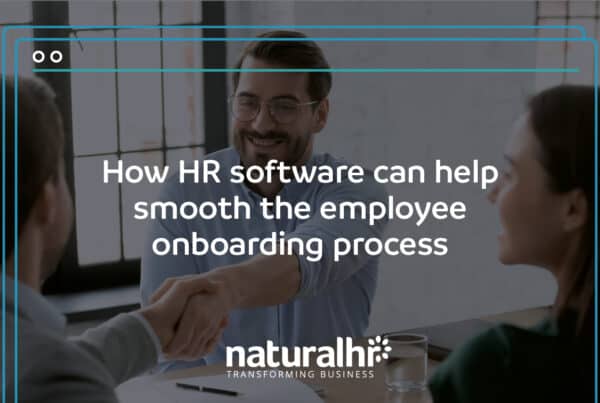
Employees may miss work for a short or long period of time for a number of reasons. After their absence, return to work interviews are a great, informal way to check in with them.
Some managers and organisations feel that these interviews are tedious and a waste of time. However, conducting these interviews actually present numerous benefits, such as reducing absenteeism in your organisation, picking up any underlying issues and ensuring employees are well enough to return to work.
Now, carrying out these discussions may seem as simple as asking why any employee was absent and if they’re feeling well enough to work now. However, there may be more to an employee’s absence, which is why knowing what to say and what not to say during a return to work interview is so important. Keep reading to learn the benefits and right way to conduct these meetings.
The benefits of conducting return to work interviews
Some managers and employees think return to work interviews are simply a waste of time. However, they offer several benefits and opportunities to detect and fix issues before they become a big deal. Two of the most prominent benefits that come from carrying out these interviews is that they help to discourage employees from taking sick leave when they don’t need it and also reduce absenteeism overall.
These interviews are also important for detecting whether there’s a pattern in their absences – such as whether they’re frequently absent on a Friday or Monday. Additionally, it’s important to use these interviews to determine whether work is contributing to the absence and negatively affecting the employee’s well-being.
These interviews can also be used to check in with the absent employee and see if they are, in fact well enough to return to work and whether they need any additional support from you or the rest of the team.
Seeing as they haven’t been present at work, you as the manager can also take this opportunity to get your employee up to speed on any important work-related issues that occurred while they were away.
What to discuss in a return to work interview
When it comes to the interview itself, there are a few topics you should generally cover. Start by finding out what caused their absence and discuss whether their work contributed to this absence. If the employee has a condition or illness, ask if it’s ongoing or recurring. If it’s something that could happen again, discuss of there is any preventative action that can be taken.
Do ask whether they’ve been to a doctor and what the doctor had to say. Also, check how they’re doing now and if they’ve recovered and feel ready to return to the workplace.
What not to say or do in a return to work interview
So far, carrying out these meetings may seem quite simple, and generally, they are. However, it does take a certain level of skill to carry them out effectively. These tips on what not to say or do during a return to work interview will help you do just that.
- Remember that an employee should never be pressured to reveal details of their absence that make them feel uncomfortable – this is their personal information, after all.
- Don’t conduct the interview in a busy environment where you may be interrupted or overheard. The employee may wish to discuss sensitive information with you, and, because of this, the meeting should be held somewhere private.
- Do not reject someone’s reason for being absent as untrue unless you have solid evidence that indicates otherwise.
- Don’t make these interviews stiff and formal. Having a casual 5 minute chat gives you more than enough time to chat to the employee about everything and creates a more relaxed environment for them. Do keep the questions covered in each interview consistent, though.
How can NaturalHR help?
Our HR software provides a digital platform where you can manage employee absences with ease. With a simple, digital return to work form, you can easily capture this data and use it to analyse and monitor employee absence as well as gain a deeper understanding of the reasons behind this.
If you’d like to know more about our HR software, feel free to get in touch or book a demo – we’re always happy to help.





